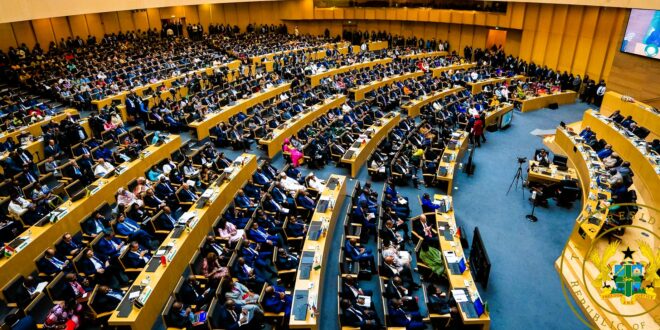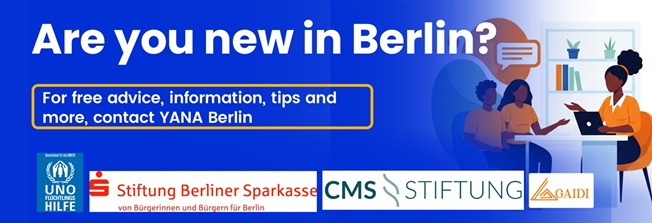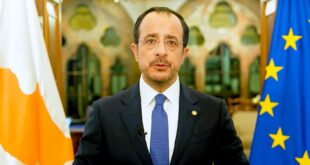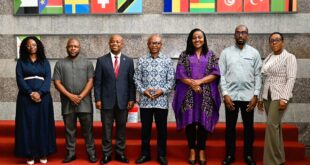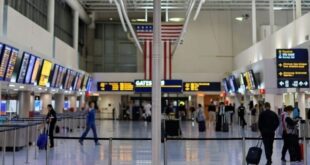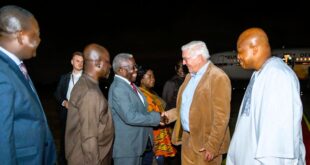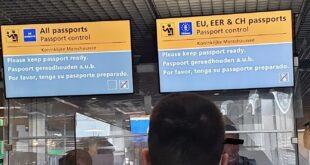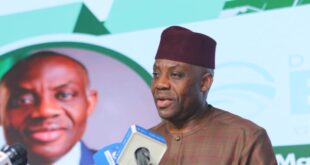Leaders of the European Union and the African Union will convene in Luanda, Angola, from 24–25 November for the seventh EU–AU Summit—an event that comes at a decisive moment for relations between the two continents. Co-hosted by Angola’s President João Lourenço and European Council President António Costa, with European Commission President Ursula von der Leyen representing the EU, the meeting will also mark 25 years of the Africa–EU partnership.
A milestone summit with new expectations
This year’s summit takes place under Angola’s rotating presidency of the African Union, giving the continent a greater sense of ownership over the agenda. While the official themes include peace and security, economic integration, trade, digitalisation, green development, migration and human development, African leaders are expected to push for a deeper shift: a partnership based on equality rather than dependence.
At the heart of the discussions will be Europe’s €150-billion Global Gateway package, billed as support for infrastructure, energy transition and digital connectivity across Africa. African leaders, however, are increasingly insisting that such investments must align with Africa’s long-term priorities—industrialisation, value-addition of raw materials, skills development and youth employment.
What Africa wants from Luanda
Across the continent, expectations ahead of the summit are unusually high:
-
A partnership of equals: African heads of state want clearer mechanisms ensuring that the continent’s priorities — such as industrial value chains, AfCFTA implementation and Agenda 2063 — shape cooperation, rather than projects being dictated from Brussels.
-
Skilled jobs and education opportunities: Universities, youth groups and policymakers have called for stronger support for higher education, research funding and skills programmes to match Africa’s young and fast-growing population.
-
Migration and mobility beyond security concerns: African leaders and diaspora communities want a more balanced migration framework — one that goes beyond border controls to include pathways for legal mobility, circular migration and recognition of skills.
-
A stronger AU-led peace and security architecture: With conflicts placing pressure on several regions, African governments want support that strengthens the AU’s own mechanisms instead of creating new dependencies on external security actors.
Why this summit matters — especially for the diaspora
For Africans in Europe and the wider diaspora, the outcomes of the Luanda summit are directly relevant. Better mobility frameworks could ease cross-border study and work opportunities. More coherent investment partnerships could expand avenues for diaspora businesses engaged in innovation, energy, digital services and manufacturing.
At the same time, many remain cautious. Previous summits produced ambitious declarations that were followed by slow or uneven implementation. Civil-society groups have repeatedly warned that without clear accountability, the partnership risks falling short of its promises.
A changed global landscape
The geopolitical environment adds urgency to the talks. Africa is increasingly courted by a variety of global actors — from China and India to Gulf states and Russia. This competition gives African leaders more negotiating leverage, but it also raises the stakes for Europe, which views Africa as a crucial partner in trade, energy and global governance.
Meanwhile, development financing worldwide has become more constrained, making the need for targeted, high-impact investment even more critical.
What to watch in Luanda
Key indicators of success for Africa will include:
-
Clear, time-bound commitments under the Global Gateway package
-
Concrete support for African industrialisation and value-addition
-
Progress on migration and legal mobility pathways
-
Strengthening of AU-led peace and security instruments
-
Meaningful inclusion of youth, civil society and diaspora voices
-
A monitoring framework to track commitments beyond the summit
The road ahead
The Luanda summit offers the AU and EU a chance to redefine their relationship for a changing world. For many Africans — on the continent and in the diaspora — the key question is whether Europe is ready to engage with Africa as a strategic partner with its own priorities, or whether the partnership will continue to fall short of its lofty ambitions.
Adira Kallo
 THE AFRICAN COURIER. Reporting Africa and its Diaspora! The African Courier is an international magazine published in Germany to report on Africa and the Diaspora African experience. The first issue of the bimonthly magazine appeared on the newsstands on 15 February 1998. The African Courier is a communication forum for European-African political, economic and cultural exchanges, and a voice for Africa in Europe.
THE AFRICAN COURIER. Reporting Africa and its Diaspora! The African Courier is an international magazine published in Germany to report on Africa and the Diaspora African experience. The first issue of the bimonthly magazine appeared on the newsstands on 15 February 1998. The African Courier is a communication forum for European-African political, economic and cultural exchanges, and a voice for Africa in Europe.

